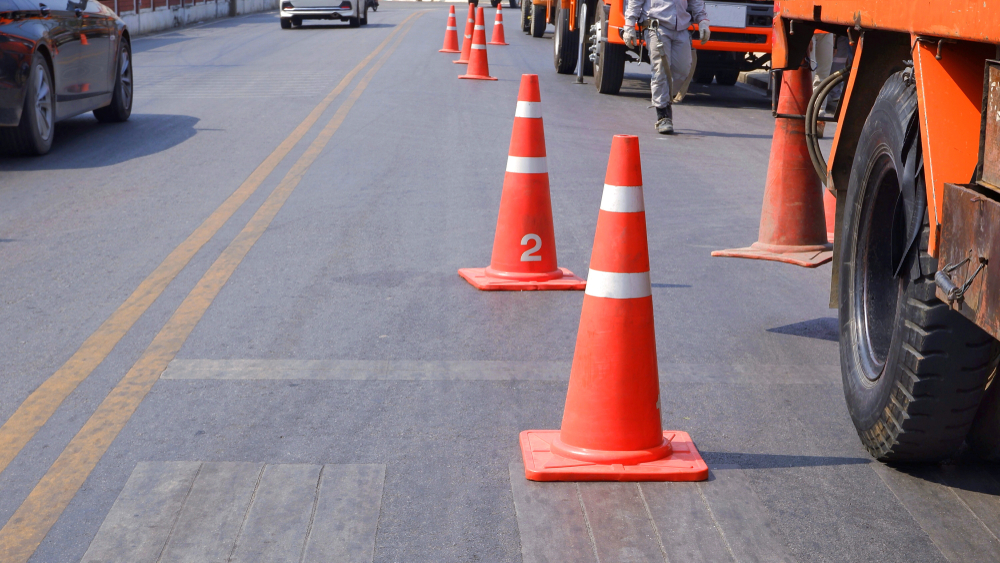
Work zones are a common sight on highways and roads, and they often mean delays, traffic congestion, and frustration for drivers. However, implementing smart work zones is changing this reality, using advanced technology and real-time data to improve safety and reduce traffic congestion. This article will explore the impact of smart work zones and the benefits they bring to drivers, construction workers, and the overall transportation industry.
The Impact of Smart Work Zones
Smart work zones substantially impact the safety and productivity of road construction projects and the transportation industry as a whole. These zones use technology to provide drivers with real-time information, enabling them to make informed decisions and avoid potential dangers. Here are some of the benefits of smart work zones:
Improved Safety
Ensuring safety is crucial in any work zone. And smart work zones can effectively decrease the incidence of accidents and injuries. With real-time information on traffic pattern changes and construction activities, smart work zones can prevent confusion and unexpected changes that often lead to accidents.
Construction workers often perform high-risk activities in work zones, prioritizing safety. Additionally, smart work zones provide real-time information on approaching vehicles and potential hazards. This enables construction workers to take necessary precautions and remain safe while carrying out their tasks.
Furthermore, smart work zones also benefit emergency responders by providing them with real-time information on traffic conditions and the precise location of the work zone. This allows them to respond quickly and efficiently to emergencies within the work zone, ensuring that help arrives promptly.
Reduced Congestion
Smart work zones have a significant impact on reducing traffic congestion. By providing real-time information to drivers about lane closures, speed limits, and other traffic pattern changes, smart work zones can prevent traffic backups and reduce delays. Moreover, smart work zones optimize traffic flow by adjusting speed limits and lane closures based on real-time traffic data. This can significantly improve the transportation system’s efficiency, reducing travel times for drivers and ensuring a smoother traffic flow.
Increased Efficiency
Smart work zones offer several innovative features that increase the efficiency of road construction projects. One such feature is real-time data, which helps construction workers optimize work schedules and reduce the time required to complete projects.
With real-time information on traffic conditions and construction activities, construction workers can adjust their schedules accordingly and avoid unnecessary delays. This not only reduces the time required to complete projects but also minimizes disruption to traffic and reduces the overall cost of construction projects.
Moreover, smart work zones also reduce the need for manual labor and other resources. By providing real-time information on traffic patterns and construction activities, smart work zones enable transportation agencies to allocate resources more efficiently, reducing the need for additional labor and equipment.
Enhanced Communication
Any work zone requires effective communication, and smart work zones can facilitate better communication between motorists and construction workers. Smart work zones can aid in reducing confusion and enhancing safety by informing motorists in real time about construction activities and potential hazards. Additionally, smart work zones can give construction workers instantaneous knowledge of approaching vehicles and potential dangers, enhancing their safety and productivity.
Improved Data Collection
Smart work zones can also provide valuable traffic patterns and construction activity data. This information can be used to improve transportation planning and decision-making. By collecting data on traffic volumes, travel times, and congestion levels, transportation agencies can identify areas where improvements are needed and develop more effective strategies for managing traffic.
Investing in Smart Work Zones
Smart work zones are transforming how road construction projects are planned and executed, with advanced technology and real-time data helping improve safety, reduce congestion, and increase efficiency. By providing real-time information to drivers and construction workers, smart work zones are helping to improve communication and data collection, leading to more effective transportation planning and decision-making. However, implementing smart work zones requires significant investment in technology and infrastructure and coordination between transportation agencies and construction companies. Despite these challenges, many transportation agencies are embracing smart work zones to improve safety and efficiency on our roads and highways.
To ensure the successful implementation of smart work zones, working with a reliable and experienced supplier of work zone signs and equipment is crucial. Companies like Worksafe Traffic Control Industries, which offer a quick turnaround time, competitive pricing, and the highest quality in every order, are essential for the success of any road construction project. Furthermore, working with a supplier that provides signs that meet the MUTCD standards is important, ensuring compliance with federal and state regulations.

